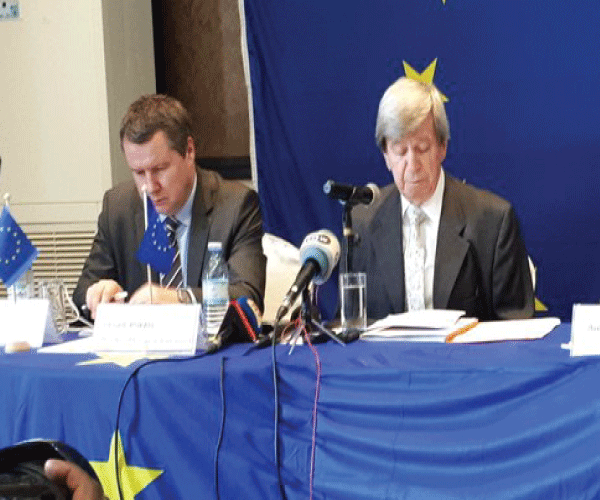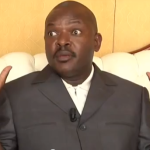The European Union (EU) is to engage the Uganda government in a bid to strengthen the electoral process and democratic institutions.
The development comes in the wake of the delayed implementation of the 30 recommendations of the EU observation mission report that was published following the 2016 elections.
In a press briefing held at Sheraton Hotel, the leader of European Union Election Follow up Mission (EFM) Eduard Kukan said his team met almost all the stakeholders including President Yoweri Museveni, opposition former presidential candidate Dr. Kiiza Besigye, the Speaker of Parliament Rebecca Kadaga, members of the Inter Religious Council of Uganda (IRCU).
They, however, did not meet the chairman of the Electoral Commission Justice Simon Bayabakama, who reportedly declined to meet them.
“The Electoral Commission (EC) lacked independence and transparency, whereupon the elections fell short of international standards for the conduct of democratic elections at key stages, however government has not taken an immediate action,” Mr. Kukan said.
He added: “There is at present a widespread agreement among political actors and the people of Uganda that there is an agenda for electoral reform flowing from a variety of sources however the question is when they be achieved.”
According to Mr. Kukan, the recommendations were meant to enhance the legitimacy and credibility of future electoral process.
“The EU is ready to render a hand for the achievement of electoral reforms,” Mr. Kukan said, adding that instead of implementing the EU recommendations, state actors were so instrumental in creating an intimidating atmosphere for both voters and candidates.
He also noted that police used excessive force against opposition, media and the general public.
Among the 30 recommendations, EU called for establishment of steps be taken to clearly differentiate the state from the ruling party in an electoral context.
Others include constituting an ‘effective sanctioning mechanism against the misuse of state resources, including administrative and security apparatus’.
The report further indicated that the Public Order Management Act (POMA) provisions, interpreted to grant the Police the right to disperse meetings, be repealed.








